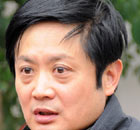Foreign and Military Affairs
Public warms to US, as political acts sway opinion
By Zhao Yanrong (China Daily)
Updated: 2011-01-17 09:34
 |
Large Medium Small |
BEIJING - Attitudes in China toward the United States have improved in the last five years, particularly among younger generations, a survey has found.
The factor is measured by a poll that asks respondents to rate countries on a scale of 1 to 100.
During the last five-year period, attitudes hit a positive peak in 2009, with the average rating at 65.1. This was due largely to US President Barack Obama's visit to China in November that year.
However, the likeability factor fell sharply to 48.2 last year after several unpopular US actions, including the US' multi-billion-dollar arms deal with Taiwan in January, Obama's meeting with the Dalai Lama in the White House in February and US interference in the South China Sea territorial disputes between China and Southeast Asian countries in July.
In interviews with 1,443 Chinese citizens aged 18 and over in seven cities - Beijing, Shanghai, Guangzhou, Wuhan, Chengdu, Shenyang and Xi'an - almost 40 percent said US political acts have the biggest influence on their opinions, followed closely by economic behavior in trade relations between the two countries.
Wu Xinbo, deputy dean of Fudan University's school of international relations and public affairs, said Chinese public opinion toward countries, especially the US, come down to a very narrow set of factors.
"Sino-US relations are a major concern for Chinese citizens, not American society or culture," said Wu.
Zhang Chuanjie, deputy director of Tsinghua University's US-China relations study center, said the US had tested China in 2010 because of a lack of understanding about China and because of the influence of the global financial crisis.
"The Chinese public has already realized Sino-US relations are at a crossroad and the direction depends on the joint effects of both governments," said Zhang.
The survey found that the likeability factor of the US is higher among younger Chinese than older generations. Interviewees aged 18 to 50 recorded an average of about 50, while for those older it was 44.3.
Wang Fan, director of China Foreign Affairs University's institute of international relations, said that after China's reform and opening-up, Chinese people began to watch Hollywood movies, Chinese students went to the US for higher education and Chinese universities invited American professors to China, thereby influencing young people.
"Chinese people are favorable to American culture. American culture will influence Chinese public opinion in the long term," he said.
Wang said more Chinese citizens now realize that criticisms from the US have more to do with Americans protecting their own interests, rather than not supporting China's development.
"When the Chinese cannot see the US treating Sino-China relations with importance, or cannot see good intentions from the US side, Chinese likeability for the US will fall," said Wang. "In the long term, negative public opinion on the US is not good for Sino-US relations."
Political and economic decisions by the US government relating to China have greatly influenced public opinion.
For example, when former US president George W. Bush visited China in November 2005, followed closely by US Treasury officials for the first China-US Strategic Economic Dialogue in 2006, the likeability factor rose, from 40.6 in 2005 to 50.1 in 2006.
Last year, the Chinese likeability factor for the US was ranked lower than Germany, Russia and France, all of which had ratings higher than 60. However, Japan's likeability factor was only 29.
Fu Yu contributed to this story.











